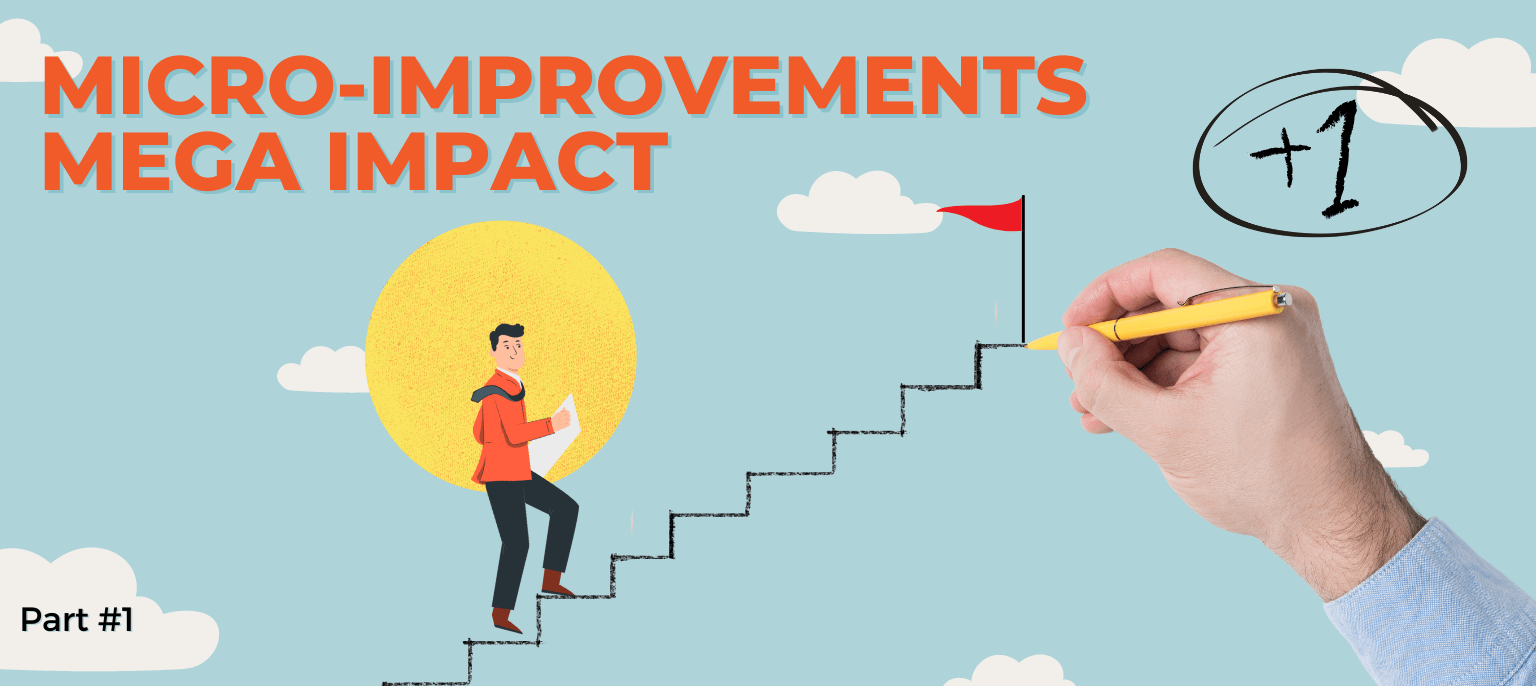
MICRO-IMPROVEMENTS, MEGA IMPACT
Change is natural, when garbed as Micro-Improvements.
There is a lot one can learn from nature. The loops and hoops of evolution spread over millions of years can teach us a lot about change and sustainability. In his book, ‘The Origin of Species’ published in 1859, Charles Darwin refers to the evolution of organisms as ‘common descent with modification’. It does not assume the need of an intelligent and omniscient ‘designer’. In tropical rainforests, the tightly packed trees compete for sunlight and grow taller. Giraffes – in their pursuit to safe & easy access to leaves on the treetops – evolved to have long necks, suggested the French naturalist Jean Baptiste Lamarck. From being a hunter-gatherer for over 2.5 million years, human beings started domestication of plants and animals to improve their access to guaranteed food.
In their context, at a given point in time, living beings have always chosen to improve their circumstances. Such improvements are micro and more often, are a simple +1 shift to their daily routine. Such acts of frequent micro-improvements, carried out repeatedly, are not terrifying because (a) they are self-initiated (not as part of some grand scheme of an unfamiliar, distant designer), (b) are relevant to the individual, and (c) are triggered with the firm belief that it will better their own situation.
Since improvements are taken up to ‘make something better’, they create minimal ambiguity in one’s mind about the future state. While change is neutral to the outcomes (can be for good or for worse), the term improvement is associated with change for good. Thus, micro-improvement, as an idea and as an act, is more acceptable and natural to us.
Meet the Author

Khushboo Awashi
A management professional turned education enthusiast, Khushboo is the Co-Founder & Chief Operating Officer of ShikshaLokam - an education leadership catalyst and Mantra4Change, a non-profit driving systemic public schools transformation in the Indian education system. With 13+ years of diverse experience in education and healthcare domain she is recipient of Women Transforming India Awards 2021 instituted by NITI Aayog, a Schwab Social Innovator of the Year 2023 and is part of BW Education 40 Under 40 Power List 2022. Khushboo is a travel enthusiast, a curious learner and an avid reader. Her interests lie in exploring concepts of agency, networks, large scale social movements and societal role of technology in encouraging co-creation and collaboration.

Khushboo Awashi
A management professional turned education enthusiast, Khushboo is the Co-Founder & Chief Operating Officer of ShikshaLokam - an education leadership catalyst and Mantra4Change, a non-profit driving systemic public schools transformation in the Indian education system. With 13+ years of diverse experience in education and healthcare domain she is recipient of Women Transforming India Awards 2021 instituted by NITI Aayog, a Schwab Social Innovator of the Year 2023 and is part of BW Education 40 Under 40 Power List 2022. Khushboo is a travel enthusiast, a curious learner and an avid reader. Her interests lie in exploring concepts of agency, networks, large scale social movements and societal role of technology in encouraging co-creation and collaboration.
